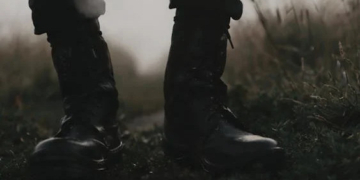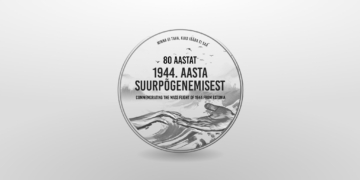When last checked in July on these pages (“The Summer of NDAA”), the United States House of Representatives was primed to vote on the Fiscal Year 2023 National Defense Authorization Act (NDAA). That vote occurred on July 14, passing on a bipartisan 329-101 vote, and authorizing nearly $840 billion in U.S. defense spending.
On October 11, the Senate began review of the bill, which had been advanced by the Armed Services Committee in July. Committee Chairman Jack Reed (D-RI) and Ranking Member James Inhofe (R-OK) incorporated additional amendments into a substitute version of the bill. The full Senate is expected to vote on the NDAA following the November mid-term elections when Congress returns to Washington, DC. Until then, congressional and committee staff will negotiate the more than 900 proposed amendments being considered for the final bill.
An effort by Senate Baltic Freedom Caucus co-chairs Richard Durbin and Chuck Grassley to pass a multi-year $250 million Baltic security-related amendment in the NDAA did not make the cut. The legislation, called the Baltic Security and Economic Enhancement Initiative, would increase U.S. security and economic ties with the Baltic countries and establish the Baltic Security Initiative to deepen security cooperation. It was hoped that the amendment would be included in a so-called managers package and adopted by unanimous consent. It’s not quite clear why this was not the case.
There are some key considerations before final passage of the NDAA. One important factor is the November 8 mid-term election. If Republicans take control of either or both the House and the Senate, negotiations may be determined depending on that outcome. Also, Congress passed a continuing resolution (CR) on September 30 to extend level funding for the federal government through December 16. Work needs to be completed by that date to avert a government shutdown. The CR would likely be extended into 2023.
However, the Baltic-specific legislation is not dead, and there may be a chance that, as in previous years, it makes it back into the bill or into appropriations legislation. Roll Call added in its October 13 story that “Americans who are descended from [Estonia, Latvia, and Lithuania] are well represented in Durbin’s home state.” Yes, voters still count and make a difference in enacting legislation.
There is better news regarding Foreign Military Financing (FMF) funding. FMF levels, together with International Military Education and Training (IMET) program requests by the Administration for the three Baltic countries, total approximately $165.3 million for FY2023, as described in a September 29 Congressional Research Service report. However, FMF funding for the Baltic countries were given a new boost when Secretary of State Antony Blinken announced in early September that a supplemental measure marked for Ukraine, would also benefit U.S. allies in the region.
While $2.2 billion in FMF funding has already been appropriated by Congress, a new $3 billion package of support for Ukraine was an-nounced, with about $1 billion of the total to go to Ukraine and the rest to be divided among 17 countries, including Esto-nia, Latvia, and Lithuania, that have provided significant assistance to Ukraine. The State Department stated that the funds will help those countries “deter and defend against emergent threats to their sovereignty and territorial integrity” by enhancing their military integration with NATO and countering “Russian influence and aggression.”
For Estonia that would mean grant funding in the amount of $140.5 million, which includes funding to help backfill military capabilities. Levels for Latvia and Lithuania are comparable. This FMF supplemental package received final approval by the U.S. Congress in late September.
The bulk of this sum, as outlined in an October 4 ERR article, “will go towards the Estonian Defense Forces’ (EDF) High Mobility Artillery Rocket System (HIMARS) procurement program, planned to be completed by 2025.”
There are growing signs that House Republicans are divided over aid to Ukraine. While Democrats have been united in supporting Ukraine following Russia’s massive escalation beginning in February, House Minority Leader Kevin McCarthy was recently quoted as saying that Congress will no longer “write a blank check” to Ukraine if there is a Republican takeover of the House following the mid-terms. The sentiment is particularly prevalent among members of the right-wing Freedom Caucus within the House Republican Party. The Baltics could also end up affected by this trend. Most Republicans, thankfully, remain steadfast in their support, including some in influential senior positions. For instance, as the Guardian reported on October 18, “the ranking Republican on the House foreign affairs committee, Michael McCaul, who is likely to run the committee in the event of a Republican win in November, argued that arms supplies to Ukraine should be stepped up.”
“We’ve got to give them what they need. When we give them what they need, they win,” McCaul said.
There are also differences in opinion about what weapons and equipment, e.g., jets, tanks, and the surface-to-surface ATACMS (Army Tactical Missile System) should go to Ukraine. Other systems, such as the light multiple rocket launcher HIMARS have proved very successful in Ukraine and are currently being sought for purchase by the Baltic countries as well. Anti-air and anti-drone systems are also critical.
The Baltic countries have made crystal clear where they stand. Besides the overwhelming support and arms transfers to Ukraine, bolstered by their own readiness and cooperation and coordination with NATO allies, the Baltic parliaments have all designated Russia as a state sponsor of terror, the Estonian parliament (Riigikogu) having voted 88-0 on October 18 to approve such a measure. The U.S. Senate passed a simple resolution on July 27 to that effect, and the House introduced a bill on July 28 which has yet to move. The Biden Administration has, to date, opposed such a move.
As Estonian Prime Minister Kaja Kallas told the Washington Post for a October 12 story, only a show of force would stop Russia’s aggression and end the war. “The way to peace,” she said, “is to push Russia out of Ukraine.”
We should all continue to work for that goal.
If you would like to learn more or want to help ensure strong U.S. support for the Baltic countries, please contact the Joint Baltic American National Committee (JBANC): jbanc@jbanc.org.
Another way to help is to sign up with the American Latvian Association (ALA) Call to Action UNIT email list. More information here:
https://alausa.org/en/our-work/civic-participation/.
The CTA UNIT helps inform U.S. elected officials and policy makers about American interests in the Baltics, especially on matters of defense and security.
























